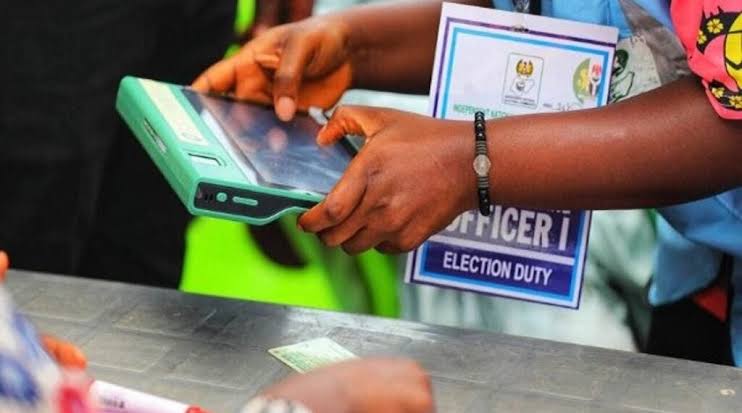- Have any questions?
- [email protected]
What the BVAS Means to 2023 Nigeria General Elections

Guaranteeing Nigerian Voter Rights: A Look at the Legal Measures in Place
25 January 2023
YMonitor Election Series: What Happens When There is Overvoting in a Polling Unit
10 February 2023One of the major highlights of the 2022 Electoral Act was the introduction of more technological innovations into the country’s electoral process. These technological innovations are expected to act as plasters to stop the leakages in the democratic process. One of the most prominent innovations in this act is the Bimodal Voter Accreditation System, popularly known as BVAS.
BVAS is a modern and innovative approach to conducting secure and efficient elections. This system is a combination of two modes of voter authentication, namely, biometric and manual. The system is designed to cater to voters who either do not possess biometric data or are uncomfortable with the technology.
You might ask, how does the BVAS work? BVAS can be used by either scanning the Permanent Voters Card (PVC) or entering the last six digits of the Voter Identity Number, or the Assistant Presiding Officer (APO 1) to verify and authenticate the voter by inputting their last name in the machine.
The BVAS came with loads of advantages. To supporters, the BVAS is like a superhero. Picture this: A superhero swoops in, preventing a corrupt official from rigging the election. The crowd cheers as the integrity of the process is saved. It’s just like how technological innovations are saving elections in Nigeria, preventing leakages and promoting fair, transparent results. Here are the advantages:
- Enhanced Security: By offering a two-step authentication process, BVAS enhances the security of the voting process. By doing this, the possibility of impersonation and other fraudulent actions during the voting process is decreased.
- Inclusiveness: Voters without access to biometric information can cast their ballots in a welcoming environment, thanks to BVAS. Regardless of their biometric data, this approach assures that all qualified voters can cast a vote.
- Accuracy: By removing human error and manual voting errors, BVAS helps to maintain the accuracy of the election results.
Well, like many things on planet earth, BVAS has its shortcomings.
- Technical Errors: Because BVAS relies on technology, any glitches could cause voting delays and compromise the accuracy of the election results.
- Training Requirements: To operate BVAS, trained personnel are needed, and if they are not adequately trained, the system may be misused.
- Limited Reach: BVAS is still not widely used, and because of this, it may not be accessible to all voters.
- Resistance to Change: Voter authentication using a manual method might be seen as less reliable and effective than biometric authentication. This might lead to voters rejecting the implementation of BVAS.
In conclusion, BVAS is a promising solution for conducting secure and efficient elections. However, like any other technology, it has its advantages and shortcomings. It is up to the election management bodies to weigh the pros and cons of BVAS and decide whether it suits their needs. Regardless, BVAS is a step in the right direction towards modernising the voting process and providing an inclusive environment for all eligible voters.

